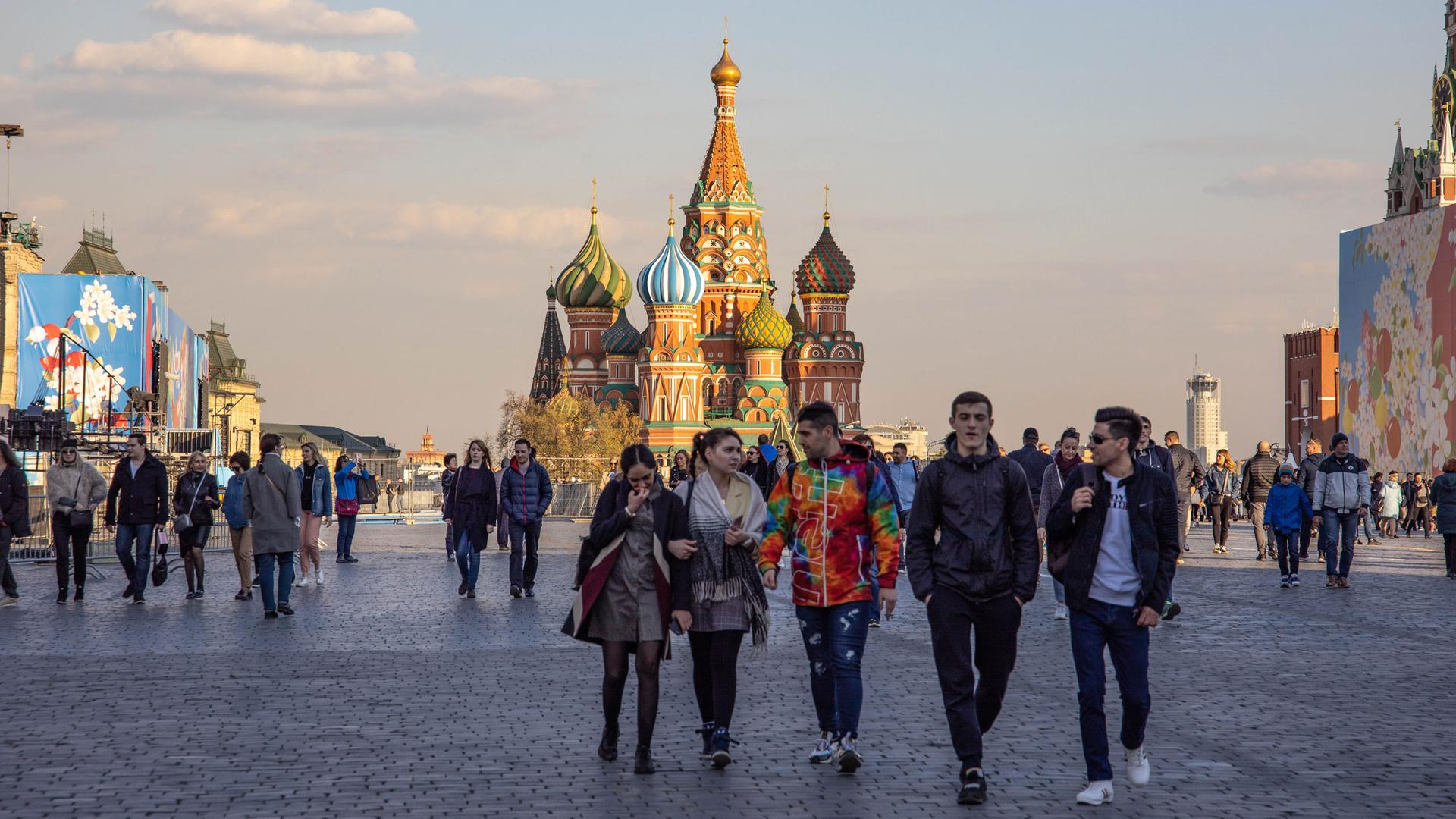Russia’s youth flex their political power
People walk in Moscow’s famous Red Square.
Is Russia “United” or looking to the “Future?”
For President Vladimir Putin, who leads the “United Russia” party and opposition leader Alexei Navalny, founder of “Russia of the Future,” it’s an important question. It’s also one the world is increasingly looking toward young people to answer.
For more than 33 million Russians under age 20, the leadership of Putin is the only type of government they’ve ever known. Putin succeeded Boris Yeltsin as president in 2000. Since then he’s bounced between the offices of president and prime minister, most recently barring Navalny from running against him in the 2018 presidential elections.
Related: ‘If not I, then who?’: Armed with the internet, Russia’s young people want to remake their world
And it’s had an effect: The vast majority of young people under 34 — 88% — support the Russian president, even more so than their older counterparts, 82% of whom are in favor of Putin, according to Ponars Eurasia.
Not everything revolves around politics for young Russians — life is more than being pro-or anti-Putin for the vast majority — but for some, politics dominates their lives.
Politics of the ‘Future’
Unlike older cohorts, young Russians are digitally savvy and turn to the internet to get most of their information.
That access point is one Navalny is trying to tap. Navalny’s own YouTube channel has 2.7 million subscribers and the Navalny Live channel has nearly 1 million followers.
The Navalny Live channel is one of the main ways the Russia of the Future party gets out its message, which is embedded in the channel’s investigative reporting into corruption high up in the Russian government.
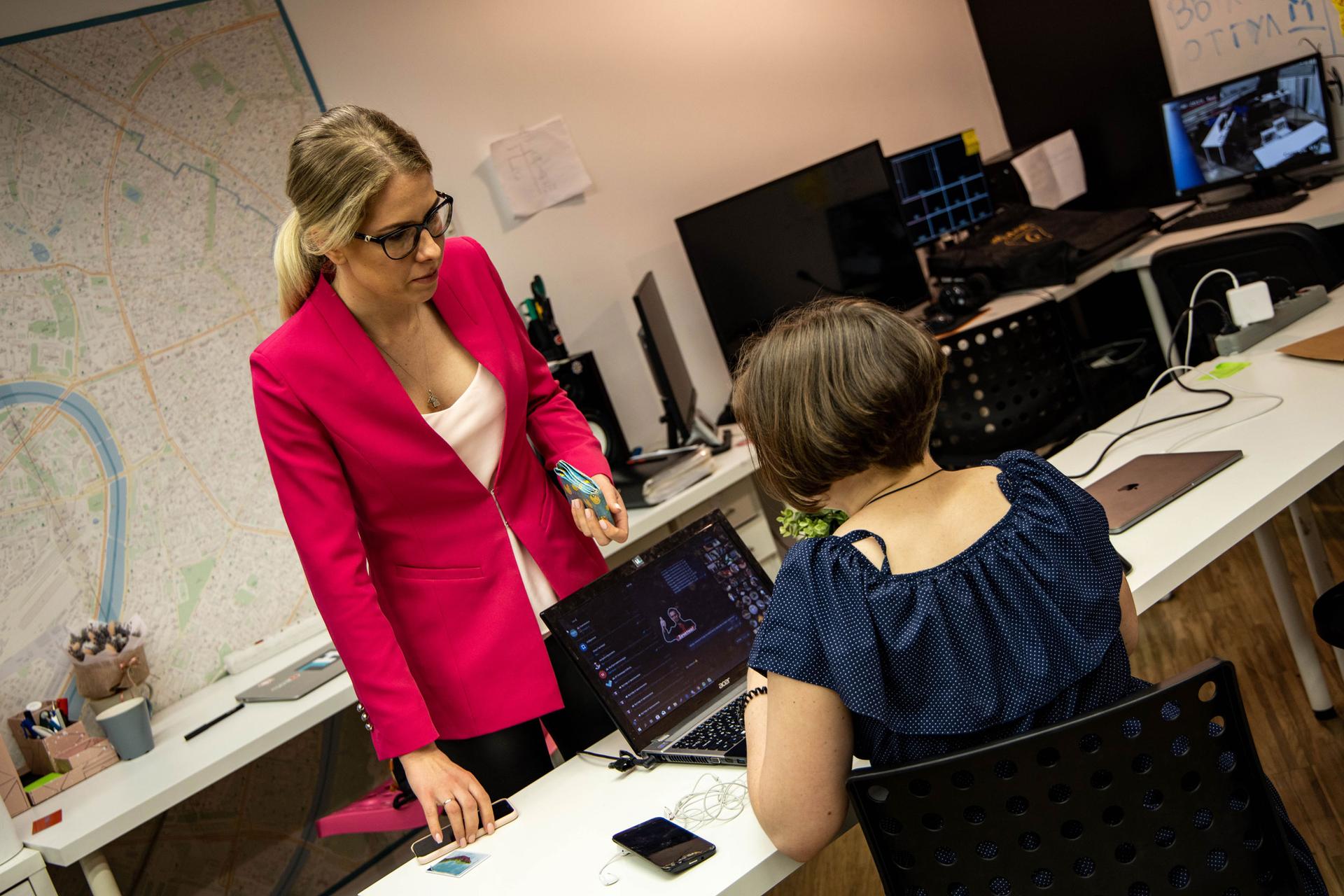
Its studio is located outside of Moscow’s center in a part of the city where Soviet-era buildings are giving way to modern office blocks and shopping centers. Lyubov Sobol, Navalny’s longest-serving aide, is the channel’s main producer.
“We came to this not because we want to be producers or YouTubers,” Sobol says. “We came to this because mass media does not allow people like Navalny who disagree with the government to appear on state television. The media is controlled by the government and this includes print media as well. You only see free expression on the internet.”
Russia of the Future is part political party, part media hub — and for young people interested in change, it’s part of a disrupting force.
Related: Russia’s volunteers take on the state — and its workload
Sobol joined the party eight years ago, right around the time Navalny burst on to the Russian political scene and as Russians were filling the streets for anti-government protests. In 2012, Time named Navalny one of the world’s 100 most influential people as a “data dissident.” A lawyer-cum-digital activist, Navalny’s charisma led him to political fame — and jail on many occasions.
“I like that Alexei Navalny works on the big picture,” Sobol says. “He talks about how vital political reform is for our country. I think that people who are analytical mostly come to the same conclusion — that working on specific cases won’t get you too far, that in Russia we need to change the parliament, the government and the president.”
‘United’ for Putin
But regime change is not on the carefully planned agenda of the local Molodaya Gvardiya, the youth wing of Putin’s United Russia party in St. Petersburg. Russian for “young guard,” Molodaya Gvardiya shares its name with a World War II anti-fascist Komsomol organization. In its current iteration, Molodaya Gvardiya takes up largely pro-Kremlin causes with the goal of instilling “patriotism and pride” in young Russians.
Molodaya Gvardiya’s presence on social media pales in comparison to that of the opposition. Their YouTube channel has only about 3,300 subscribers and a Twitter account has more than 10,000 followers. But they do have access to the state-controlled media. The audience is older, but it’s huge — and it’s one that Navalny can’t access.
The organization has also set out to change the narrative that the opposition is really in control beyond the fortified walls of the Kremlin. In the run-up to Putin’s latest inauguration last May, Navalny called on his supporters to take to the streets in protest. But young Putin supporters were there, too. According to Carnegie Moscow Center, organizations like Molodaya Gvardiya, were conceived largely as a response to political action by opposition protests.
“The streets belong to us. United Russia is huge and the rest of the parties are tiny,” says Sergey Khristenko, 27, a member of Molodaya Gvardiya.
Khristenko is deputy to Alexander Malikov, the Molodaya Gvardiya director in St. Petersburg. Both men say dreams of becoming president at a young age brought them to the organization.
“I think this might be a theme for many of us,” Malikov says. “In fact, my first essay in school was, not if I become the president, but rather when I become the president.”
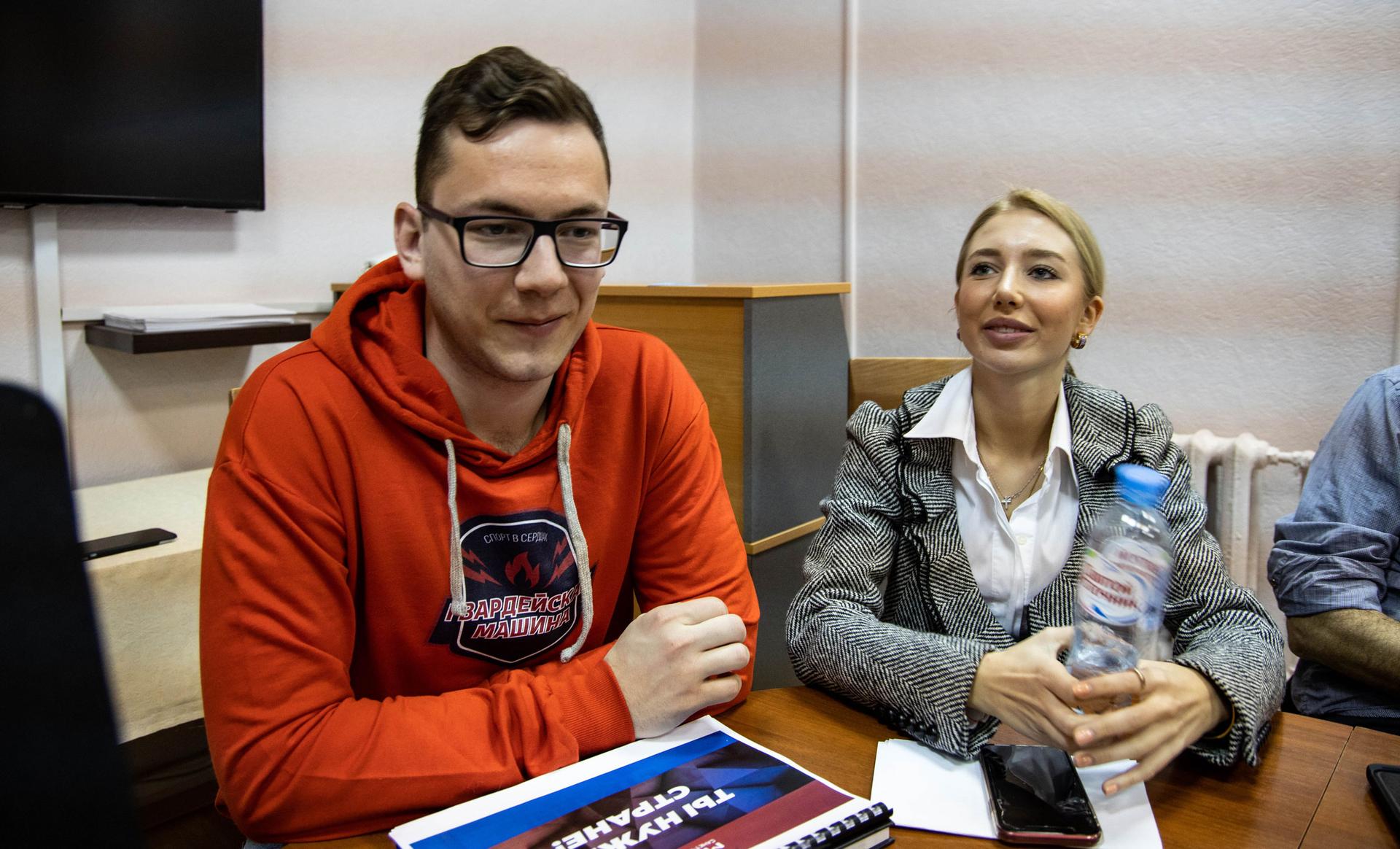
But not every member has dreams of political greatness. For some, Molodaya Gvardiya holds the key to their social life and job prospects.
Anastasia Koveza was a medical student when she got involved with Molodaya Gvardiya.
“For me, Molodaya Gvardiya is a social boost that’s not just for politicians and lawyers,” she says. “Thanks to my work within Molodaya Gvardiya, within three years I got an internship and I later got a job in the legislative assembly.”
That “social boost” is a significant incentive for young people to join Molodaya Gvardiya. Often younger people from across Russia move to Moscow or Saint Petersburg to pursue education or find better jobs. But after arriving, it’s not always easy to build connections.
That’s one of the benefits Molodaya Gvardiya has to offer — support Putin and the United Russia party, attend rallies, organize events, post pro-government statements on social media — and the organization can help members get internships and jobs in the field of their choice.
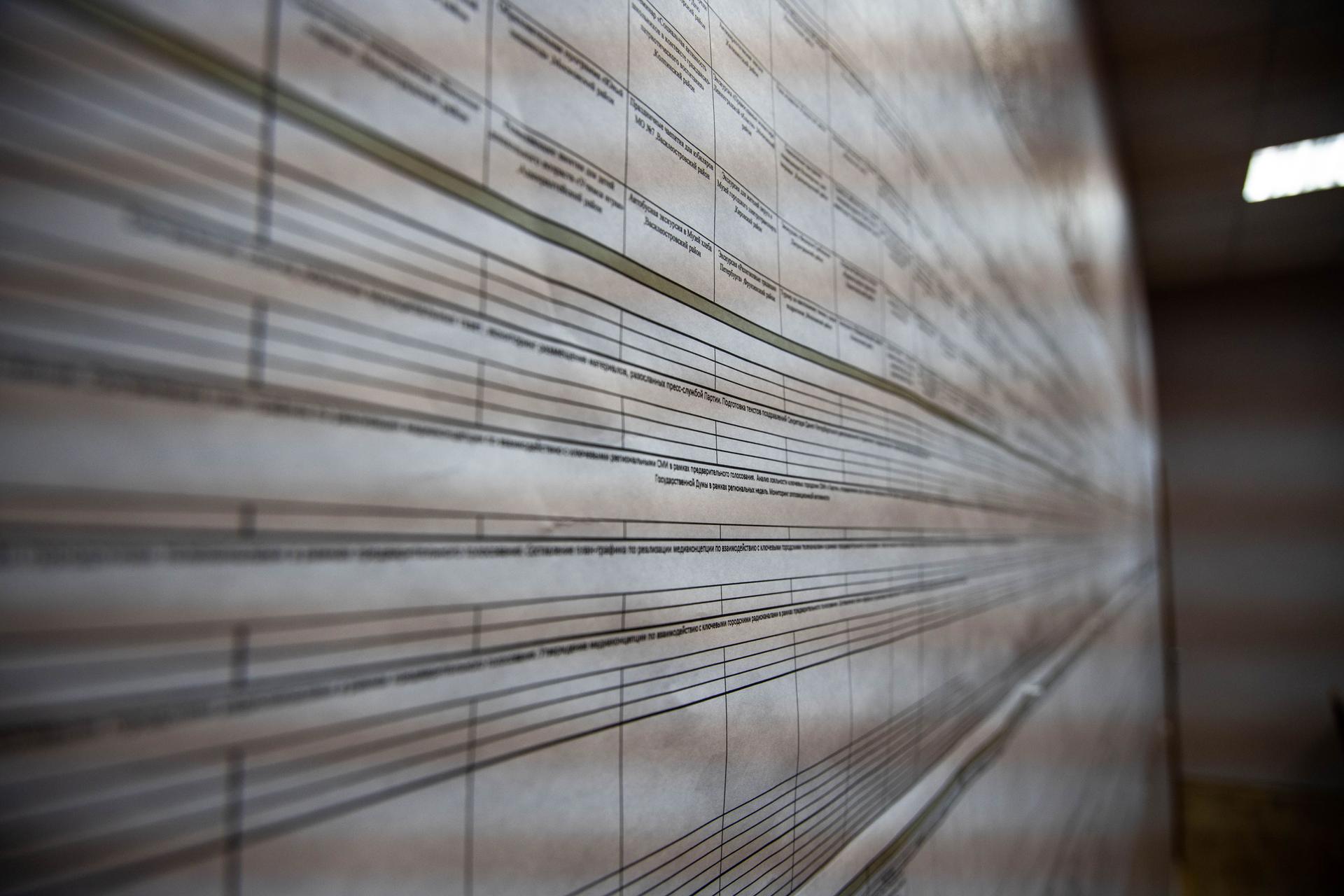
The organization also functions as a social club, or an extension of family.
“I always say that Molodaya Gvardiya is like a family,” says member Mikhail Pirogov. “I’m always responsive, I always answer calls. Often people will call in the middle of the night. It’s not just business all the time, sometimes people call about personal issues. People asking for support, advice, people who got into arguments with their parents, or are going through a breakup. I always pick up the phone.”
But when it comes to fundamental questions of politics, Molodaya Gvardiya tows Putin’s line. While social science analyses label Russia’s current political system as decidedly authoritarian, Malikov is quick to defend the legitimacy of Russian democracy.
“We have a plethora of political parties,” Malikov says. “I recall that in your country [the US], there are two main political parties, conservatives and Democrats. We have many more in our parliament and in our legislative assembly. In addition, we have many other public organizations were people voice their opinions.”
But Malikov is not convinced that Navalny supporters are more engaged, younger and louder than his group.
“The streets are ours, the internet is ours,” Malikov says. “We are not 70, 80 years old. We show our peers how to act, we lead the way. We show our peers how to make it in this country, in Russia. If we don’t take charge and lead by example and show the youth how to act, someone else will.”
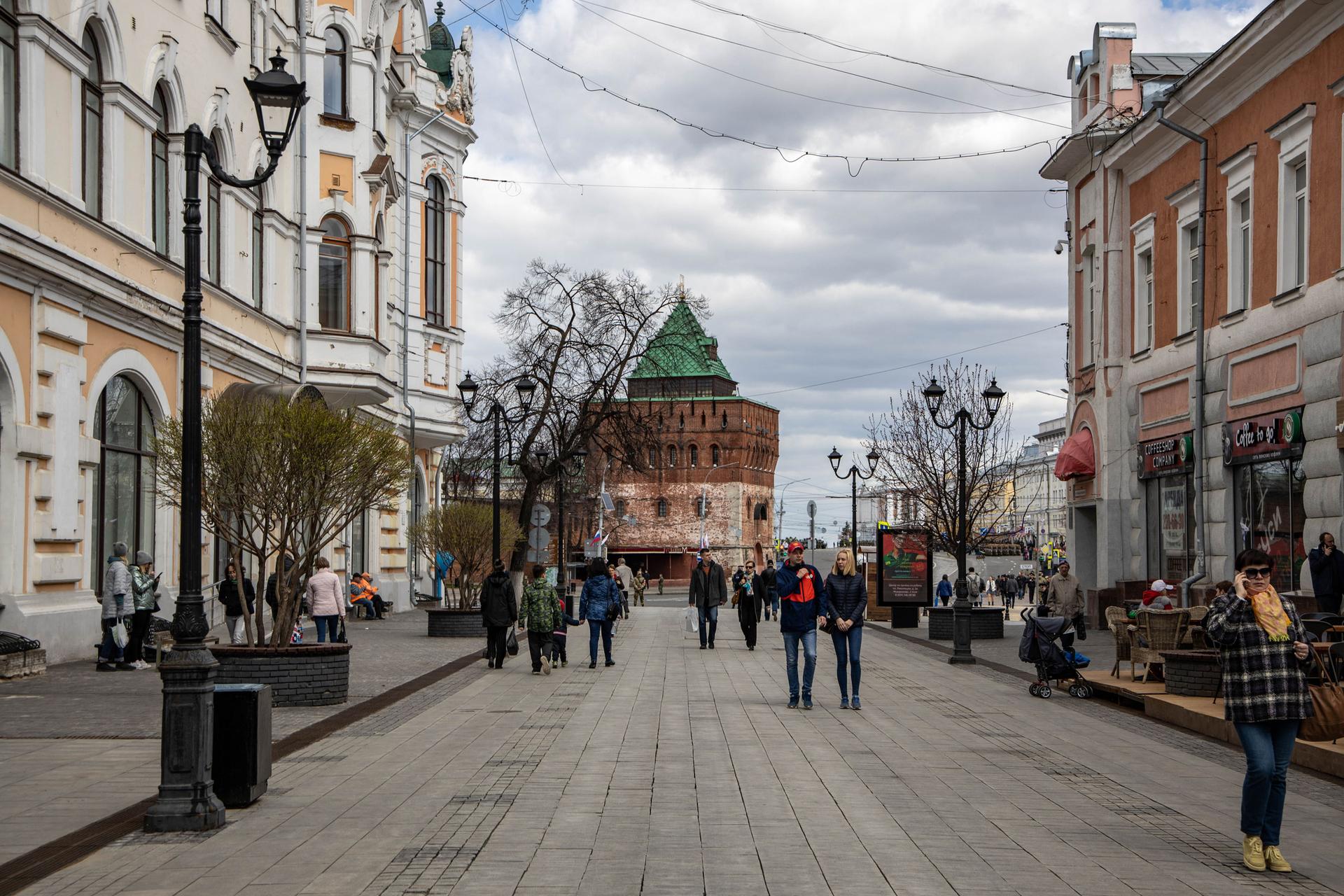
A ‘Future’ arrested?
But being politically involved can be harder for those in the opposition, who say they are exposed to danger when they voice their opinions — and, they say, they have a lot more to lose.
In Nizhny Novgorod, a city about 300 miles east of Moscow, Dmitri Silivonchick is the coordinator for the local Navalny headquarters. He is no stranger to taking risks for the cause.
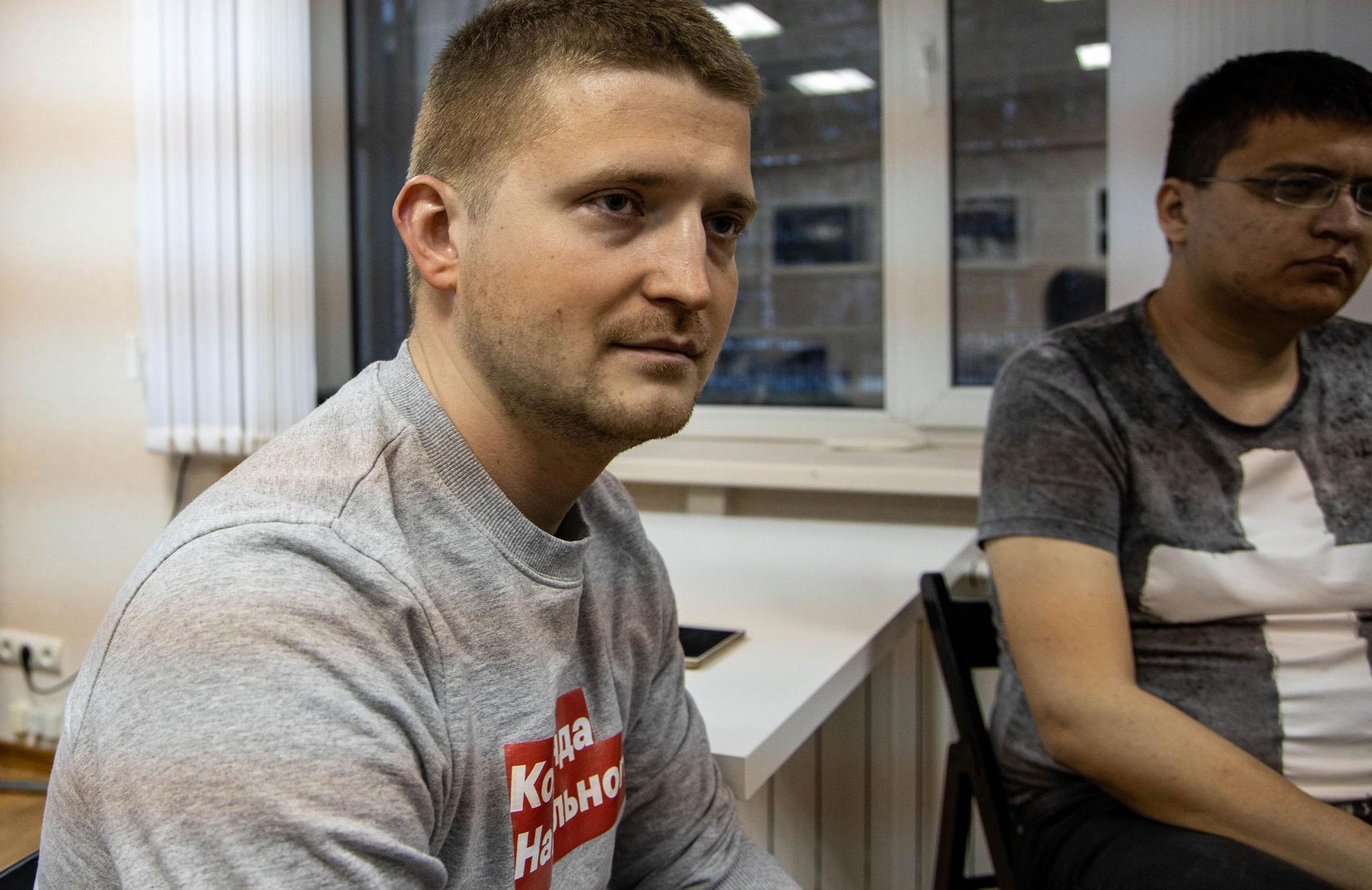
“Amongst the people present in this room, almost everyone here has been arrested at one point or another,” Silivonchick says as he looks around a circle of four other Navalny activists. “So, for the most part, any person who is actually involved in activism faces some sort of government investigation, persecution, fines or short terms in jail,” Silivonchick says.
Navalny has hammered away at Russia’s endemic problems with corruption in politics. He dubbed United Russia “the party of crooks and thieves,” inciting the ire of pro-Putin forces, who have attempted to discredit him and intimidate his followers. But supporters remain steadfast, going into the streets, attending rallies and campaigning during elections.
“When I go to a rally or some activity I’m afraid because I understand that I may not come home today,” says Dmitry Kalentiev, a tutor in Nizhny Novgorod who is an activist with Russia of the Future, despite his fear.
Putin’s United Russia party often depicts Navalny supporters, especially the younger ones, as clueless kids, riled up by their angry leader. United Russia says that Navalny manipulates his supporters, leading them to arrest. But the Navalny supporters in Nizhny Novgorod seem to know exactly what they’re getting into and why.
“If we don’t do this work then we will lose our future,” Silivonchick says. “This motivates me. I understand that if nothing changes there won’t be a future either way. We already basically lost everything, and we’re trying to save the situation. That’s how I see it.”
But activism has come with real consequences. Lyubov Sobol, Navalny’s aide in St. Petersburg, understood the risk firsthand three years ago when her husband was stabbed in the thigh with a syringe. Sobol’s husband went into convulsions and was hospitalized. In late 2018, media reports came out linking the stabbing to Yevgeny Prigozhin, a Russian businessman with ties to Vladimir Putin.
Navalny supporters also know that they are being watched regularly and that their activism could affect their livelihoods.
“Of course there’s fear, there’s something to lose,” says Tatyana Arshinova, another activist. “If you get arrested, you can also lose your job. Few employers can hold onto employees who get arrested for 10-day periods on multiple occasions. There’s a lot to lose, there’s fear, but the regime that we have in place right now, it’s built on fear, and it’s our goal to overcome this fear and to protest.”
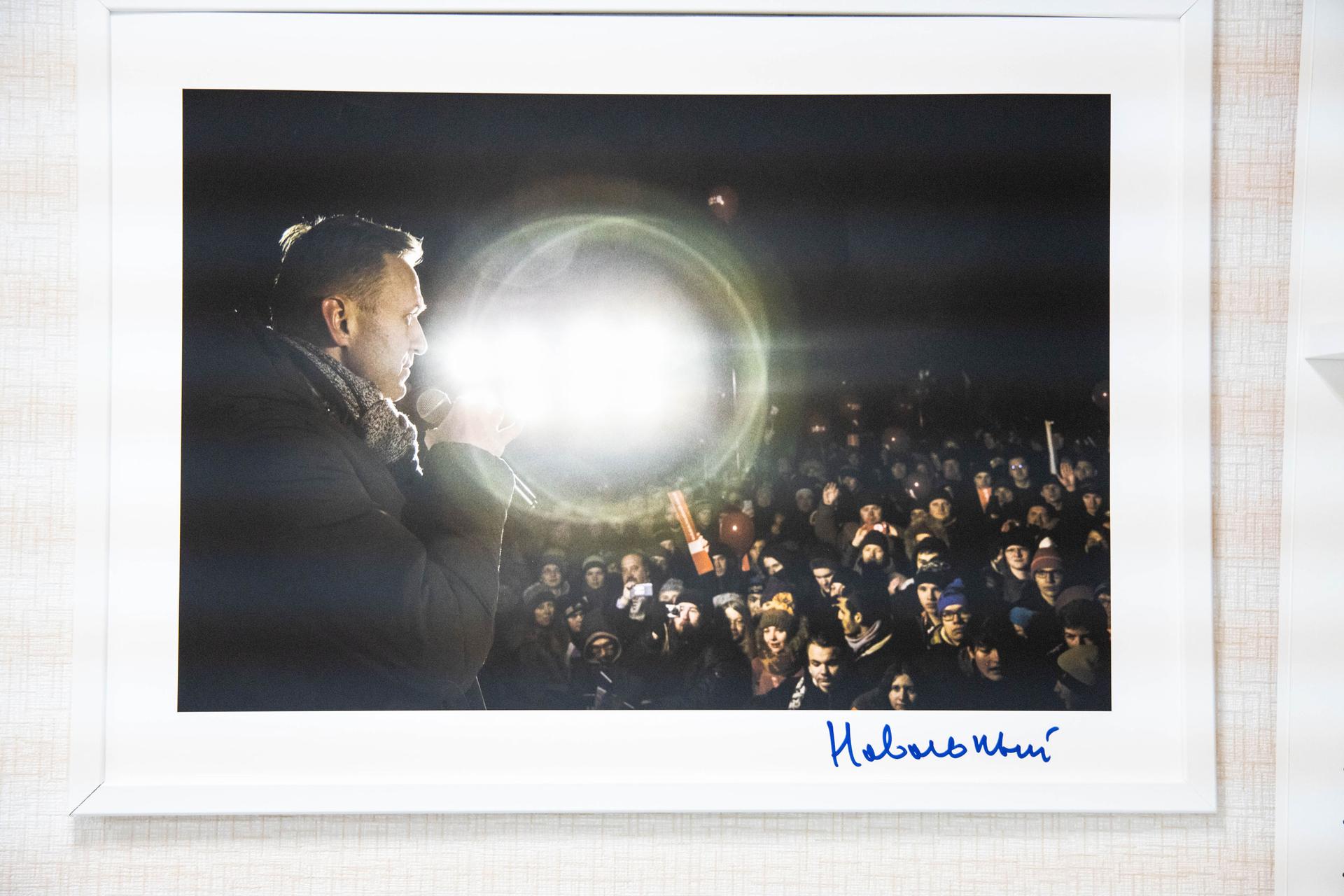
For these opposition activists, Navalny represents change — or at least the promise of change.
“Alexei Navalny, for me, he gives me future,” Kalentiev says. “He is just that person that wants to change the present, I think that there is no other person for now who does the same, and that is why I support him. I would like to see other people, I would like to see different people who would do the same thing, but for now, it’s primarily him and it’s great that we have at least one person who does that much.”
This is part two of The World’s series “Generation Putin.” Marco Werman and Charles Maynes contributed reporting.
